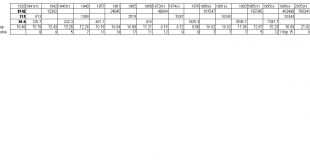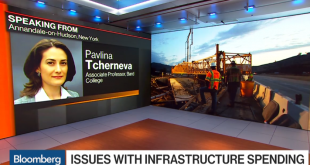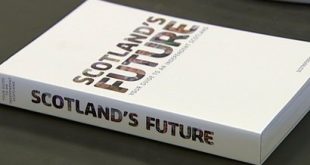A crucial part of the case for the Adani coal project is the “pit to plug” strategy in which companies in the Adani Group would mine coal in the Galilee Basin, transport it by rail to Abbot Point, ship it from there to India, burn it in Adani Power’s coal-fired power stations and sell the generated electricity to Indian consumers. This claim is important to Adani for three reasons * First, it is supposed to mean the big decline in the world price of coal since the project began is not a...
Read More »Sucking it out faster than you make it, Income distribution and gdp 2008
« Back I am reposting this at Dan’s suggestion as it relates to the recent post by Steve Roth. I have edited it slightly along with a retitle to clean up some wording and hopefully have made it easier to read. For those new here, my posts started with income inequality and a thought that we changed our economy as to how we would make money starting in the 80′s. My one new thought is that the obvious political party to promote policy that addresses the...
Read More »A theory of economic policy
New paper by Thomas Palley tilted "A theory of economic policy lock-in and lock-out via hysteresis: rethinking economists’ approach to economic policy" has been published. From the abstract: This paper uses hysteresis to develop the concept of policy lock-in and lock-out. Policy changes may near-irrevocably change the economy’s structure, thereby changing the distribution of wealth, income and power. That may lock-in policy by changing the political equilibrium. Exit costs that block...
Read More »Why Macron Should Not (and Cannot) Follow the German Model
Jörg Bibow | June 2, 2017 The Economist‘s analysis of Germany’s job market miracle of the past ten years offered in “What the German economic model can teach Emmanuel Macron” is more balanced than the usual accounts one hears in Germany itself. Germans are in love with the idea that structural reform of their labor market and persistent budgetary austerity were solely responsible for the German economy’s superior performance...
Read More »“Stimulus” Isn’t the Best Reason to Support (or Oppose) Infrastructure Spending
A little while back, Pavlina Tcherneva appeared with Bloomberg’s Joe Weisenthal to talk about the potential infrastructure policy of president-elect Donald Trump. She noted that, contrary to initial assumptions, the upcoming administration may not end up pushing public-debt-financed infrastructure spending, and that if the program simply amounts to tax incentives and public-private partnerships, it won’t be nearly as effective. But Tcherneva added another important dimension to this...
Read More »How Bernie’s Economic Policies Fit into Economic Theory
By William K. Black April 19, 2016 Bloomington, MN The journalist Adam Davidson has written an interesting article about economics and Bernie Sanders. As an economic adviser to Bernie I found his take on Keynesian and institutional economics of considerable interest. Institutional economics, contrary to Davidson’s take on it, is thriving and the University of Missouri at Kansas City has long been a center of institutional economics. (I am one of the scholars at UMKC that works...
Read More »The International Labour Organisation… Almost Correct
I have an article up on Al Jazeera this week. It may be the last journalistic article I write for some time as I start a new job next week. But this one deserves some brief discussion because the material it deals with is hugely important to the politics of the moment. In the article I discuss a joint report by the ILO, the OECD and the World Bank. The ILO have clearly spearheaded this one. It has their fingerprints all over it. The ILO are pretty fantastic really. They are one of the...
Read More »The Economic Consequences of the Overthrow of the Natural Rate of Interest
For quite a few months I have, on this blog, been alluding to a paper that I had written which showed that the natural rate of interest is implicitly dependent on the EMH in its strong-form in order to be coherent. I have finally published this paper (in working paper form) with the Levy Institute and it can be read here: Endogenous Money and the Natural Rate of Interest: The Reemergence of Liquidity Preference and Animal Spirits in the Post-Keynesian Theory of Capital Markets Some...
Read More »Scotland: After the Election and Moving Into the Future
I have some writing to do today, so I’m not doing a post. Yesterday, however, I published a piece on Al Jazeera America about the future of Scotland after the election. It might be worth a read. Scotland’s future is still in doubt If you are interested in this issue — and I think that it is an extremely interesting issue as Scotland still has the potential to be a country ripe for economic experiment — I highly recommend the following piece by Frances Coppola. In it she plugs my dual...
Read More » Heterodox
Heterodox





